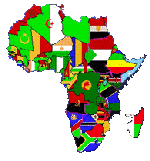Bible Study: On 12-Apr-10, I posted a guest article by Kevin Howard, Is the Missionary a Competent Theologian?. The best theology comes from regular study of God's Word. Dr. Bob Utley, retired professor of hermeneutics, East Texas Baptist University has developed a free Online Bible commentary to provide help in in-depth study of the Word. In addition to the online resources, Dr. Utley's ministry provides a free Verse-By-Verse Computer Bible Study Library CD-ROM and Bonus DVD [that] contains over 8,000 pages of verse-by-verse exegetical Old Testament and New Testament commentaries as well as OT and NT Surveys. Also included are Bible commentaries in Afrikaans, Arabic, Bengali, Chinese, Farsi, French, Hindi, Hungarian, Indonesian, Korean, Oromo, Portuguese, Punjabi, Russian, Serbian, Slovak, Spanish, Tagalog, Telegu, Thadou, Turkish, Urdu and Vietnamese. The Bonus DVD contains more than 850 minutes of video and audio files from Dr. Bob's latest "You Can Understand the Bible" TM Bible Interpretation Seminar." (quote from web site).
Technology and Missions: I've uploaded a couple of posts about the use of technology in missions in Sub-Saharan Africa. While there are a number of places where the use of internet technology would make no sense, there are places where web-enabled cell phones and computers are used by enough people that I think missionaries should consider whether mobile technology could be a part of their strategy. I'm constantly finding resources related to using the internet for evangelism and discipleship. Here are a few that I've run across this week:
- Lausanne World Pulse, June 2010 -- Technology: Is It Changing Missions?
- Facebook and Missions
- book review of Netcasters: Using the Internet to Make Fishers of Men
- publisher's page about Netcasters: Using the Internet to Make Fishers of Men
- Netcasters Facebook page
Books: Resource for free books on missions -- downloadable PDF books. Titles include: A Call for Cooperation and Partnership (emergence of new mission agencies and initiatives "in the old mission sending countries and especially in the new sending countries of Latin America, Africa and Asia"); Becoming an Intentionally Intercultural Church ("...helping congregations transition from a fundamentally monocultural membership...to one that intentionally seeks to reach...."); Starting and Strengthening National Mission Movements ("Report of research conducted by the Missions Commission Task Force on National Missions Movements"); Women as Risk-Takers for God (stories of female leaders who "serve as role models for women everywhere who long to understand and use their spiritual gifts", including Kay Arthur, Kay Coles James, Eva Burrows, Judy Mbugua).
I'm sure there are almost innumerable resources available, both online and off-line.
- What resources have you found to be helpful in developing your strategy for people of Sub-Saharan Africa?
For the Kingdom,
Bob A









